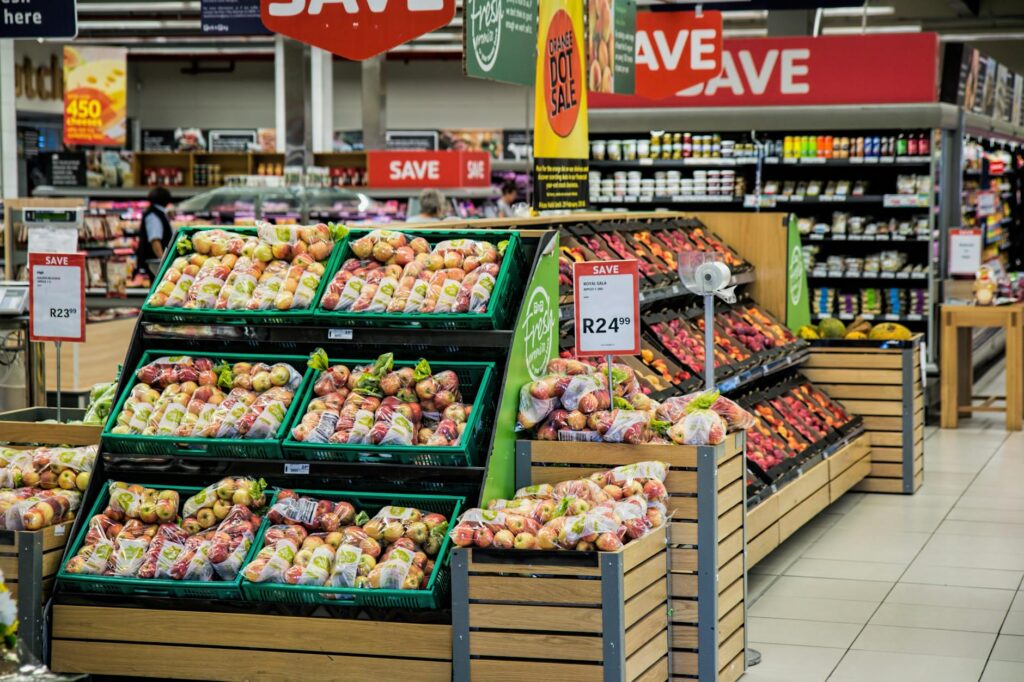Smart Shopping Tips to Cut Grocery Costs and Save Big
Grocery shopping can be a daunting task, especially when prices seem to rise every week. With a little strategy and some smart tactics, you can make your budget go further without sacrificing the quality of your meals. Finding ways to cut grocery costs is essential for managing your overall budget and maintaining a healthy diet.
By implementing a few smart shopping tips, you can navigate the aisles more effectively and discover where to save money. It’s all about being intentional with your choices, from what you buy to how you plan your meals. With the right approach, you can enjoy your shopping experience while keeping your food expenses in check.
Plan meals ahead

Planning your meals ahead can really save you both time and money. Start by choosing easy recipes that use similar ingredients to minimize waste.
Take a peek at what you already have in your pantry and fridge. This way, you can create meals around those items and avoid unnecessary purchases.
Make a grocery list based on your meal plan. Stick to it while shopping to prevent impulse buys and stay within your budget.
By planning ahead, you’ll not only cut costs but also make mealtime less stressful.
Make a detailed shopping list

Creating a detailed shopping list can significantly trim your grocery costs. Start by planning your meals for the week. This helps you focus on what you truly need.
Write down all the ingredients for your recipes. Stick to the list while shopping to avoid impulse buys.
You can also organize your list by store sections to make your trip more efficient. This way, you save time and reduce the chance of forgetting items.
Tracking what you have at home can prevent unnecessary purchases too. Keeping your list clear and concise will help you stay on budget and shop smart.
Buy in bulk when it’s cheaper

Buying in bulk can save you cash, but it’s crucial to know when it actually makes sense. Check the unit prices to compare bulk versus regular sizes. Sometimes, grocery stores offer better deals on larger quantities.
Don’t forget to consider perishables. If you can freeze extras, go for the bulk buy. For items that last, such as grains or canned goods, stocking up can keep your pantry full and your budget intact.
Just remember, not everything is a deal. Avoid bulk on items you won’t use fast enough, as that can lead to waste and more costs down the line.
Snack before shopping to avoid impulse buys

Before you hit the grocery store, grab a snack. A small meal or healthy treat keeps your energy up and helps curb those cravings.
Shopping on an empty stomach often leads to impulse buys. You might find yourself reaching for snacks or items that sound good at the moment.
Eating something beforehand anchors you to your list, making it easier to stick to your budget. Plus, you’ll feel more focused and less likely to stray down those tempting aisles.
Opt for Store Brands to Save Money

Choosing store brands can significantly cut your grocery costs. These products often match the quality of name brands but come at a lower price.
Many stores offer their own versions of popular items. You’ll find everything from snacks to cleaning supplies.
Don’t hesitate to try them out; you might be surprised by how good they are. Plus, your wallet will thank you.
Next time you’re shopping, give those store labels a shot and see how much you can save.
Use coupons and digital discounts

Using coupons can significantly cut your grocery bills. Keep an eye out for store-specific coupons and pair them with sales for extra savings.
Don’t forget about digital discounts! Many grocery stores offer digital coupons accessible through their websites or apps.
Signing up for loyalty programs often gives you access to exclusive deals, too. Just remember to check expiration dates on both paper and digital coupons to maximize your savings. The less you spend at the store, the more you can save for other things!
Stock up on sale items

Shopping for groceries can feel overwhelming, but one smart strategy is to stock up on sale items. When you spot discounts on non-perishable goods or frozen foods, grab them while you can.
Buying in bulk when things are on sale saves you money in the long run. Make sure to check your store’s sales flyer or app to plan your meals around what’s discounted.
Don’t forget to look for store brands, which often go on sale. They can be just as good as name brands but come at a lower price.
Buy Seasonal and Local Produce

When shopping for groceries, consider buying seasonal and local produce. It’s often fresher and tastes better than items shipped from far away.
Buying what’s in season can also save you money. Seasonal fruits and vegetables tend to have lower prices since they are more abundant.
Look for signs at your grocery store that indicate local or seasonal items. This not only supports local farmers but also helps reduce your grocery bill. Plus, you might discover new favorites along the way!
Stick to Your List at the Store

When you head to the store, bring a shopping list. This keeps you focused on what you really need and helps prevent impulse buys.
You can make your list based on meals you plan to cook. Being specific about what you need will save you time and money.
Try to avoid shopping while hungry. It’s easier to stick to your list when your stomach isn’t tempting you with extra items.
Shopping alone can also help you stick to your budget. Distractions can lead to unplanned purchases, so keep it simple.
Scan Weekly Grocery Ads for the Best Deals

Checking weekly grocery ads is a smart way to save money. Spend a few minutes each week to see what’s on sale at your local stores.
Look for specials on items you regularly buy. This can help you plan your meals around the best prices.
Don’t forget to compare ads from different stores. You might find better deals in one store versus another, so it’s worth the effort.
Taking advantage of sales can really make a difference in your grocery budget. Happy shopping!






